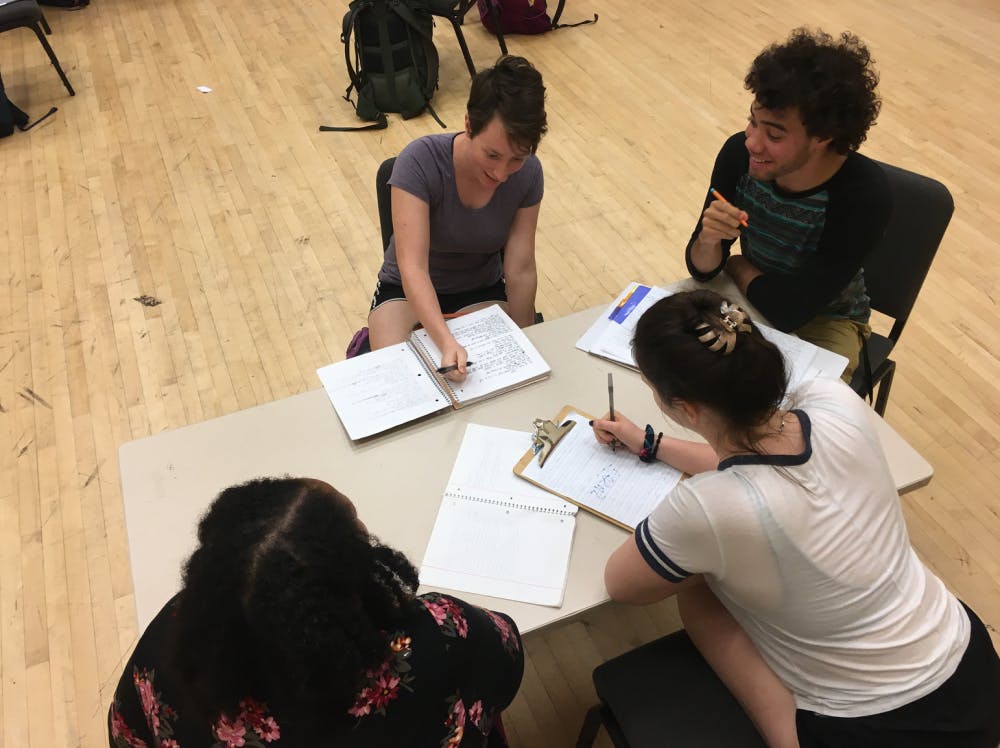The Me Too Monologue production team held a workshop and planning session Tuesday at 6:30 p.m. to tackle what messages they want to present in their show.
Me Too Monologues, which began at Duke University in 2009, have been produced at Chapel Hill for the past five years. Students may submit an anonymous monologue that is then performed, directed and designed by students for an audience.
“The format gives itself over really well to intimate events because it’s not coming from you, but it’s coming from a third party,” sophomore Michele Metzger, producer of Me Too for the Kenan Theatre Company, said. “We want a lens on college from people who are in college.”
Although the Me Too Movement, which started in 2006 and was popularized in 2017 on Twitter, is about combating sexual assault, the name of the production is unrelated and pertains to a broader range of topics.
Senior Ruthie Allen, one of four co-directors, said topics include mental health, identity, gender, sexuality, culture, cultural appropriation, race, sexual assault, administrations and self-image.
“Directing this project is different than directing a typically structured theatrical piece, because it’s not one cohesive plot — we still have this large cast, and we still have something to say with these very short pieces," Allen said. "They all say something different but they all say something in unison as well."
Jacqueline Lawton, a playwriting professor who led the workshop Tuesday, said she believes this production is unique because of the relationship between the actors and writers.
“What’s truly beautiful about these monologues is that they are written from truly personal, authentic, vulnerable experiences that are submitted anonymously — almost as though it was a diary entry,” Lawton said. “And now an actor who is trained to perform is turning this intimate story into a performance. It’s breathtaking to think about the transformation that happens in the rehearsal room.”
Last year, UNC students formed a partnership for the project with North Carolina Central University, which will continue this year.



